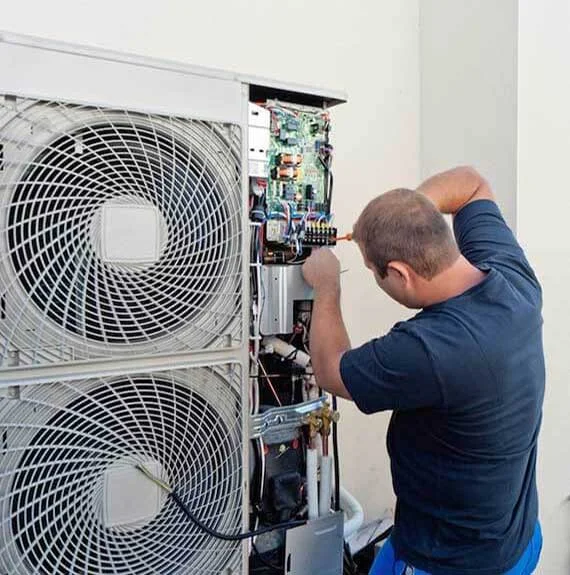Humidity, the amount of moisture present in the air, plays a significant role in the effectiveness of Air Conditioning Contractor Colleyville TX. Whether the humidity levels are too high or too low, they can affect the performance and efficiency of air conditioning units, as well as the overall comfort of indoor environments.

This article explores the impact of humidity on air conditioning effectiveness, highlighting the challenges posed by high and low humidity levels and strategies for managing humidity to optimize air conditioning performance.
How Air Conditioning Works
Before delving into the impact of humidity on air conditioning effectiveness, it’s essential to understand how air conditioning systems function. Air conditioning works by removing heat and moisture from indoor air, creating a cooler and more comfortable environment. The process involves several key components, including a compressor, condenser, evaporator coil, and refrigerant. As warm air passes over the evaporator coil, the refrigerant absorbs heat and moisture, cooling and dehumidifying the air before circulating it back into the indoor space.
Impact of High Humidity on Air Conditioning
High humidity levels can impair the effectiveness of air conditioning systems in several ways:
- Reduced Cooling Efficiency: When humidity levels are high, air conditioning systems must work harder to remove moisture from the air, reducing their cooling capacity. As a result, indoor spaces may feel warmer and less comfortable, even if the air conditioning system is running continuously.
- Increased Energy Consumption: The increased workload placed on air conditioning systems in high humidity conditions can lead to higher energy consumption and utility bills. As the system struggles to maintain desired temperature and humidity levels, it may run longer cycles and consume more electricity.
- Potential for Mold and Mildew Growth: High humidity environments provide ideal conditions for mold and mildew growth, especially in areas with poor ventilation or inadequate air circulation. Mold and mildew not only compromise indoor air quality but also pose health risks to occupants, exacerbating respiratory issues and allergies.
Impact of Low Humidity on Air Conditioning
While high humidity levels can pose challenges for air conditioning effectiveness, low humidity can also have adverse effects:
- Dry and Uncomfortable Indoor Environment: Low humidity levels can result in dry and uncomfortable indoor environments, causing symptoms such as dry skin, irritated eyes, and respiratory discomfort. In extreme cases, low humidity can lead to dehydration and exacerbate respiratory conditions such as asthma and allergies.
- Potential for Static Electricity Buildup: Dry air increases the likelihood of static electricity buildup, leading to static shocks and damage to electronic devices and equipment. This can be particularly problematic in office settings or areas with sensitive equipment that requires controlled humidity levels.
- Health Concerns Related to Dry Air: Prolonged exposure to low humidity can lead to respiratory issues, dry throat, and sinus problems. It can also exacerbate skin conditions such as eczema and psoriasis, leading to discomfort and reduced quality of life.
Strategies for Managing Humidity Levels with Air Conditioning
To optimize air conditioning effectiveness and maintain comfortable indoor environments, consider the following strategies for managing humidity levels:
- Use of Dehumidifiers: Supplemental dehumidifiers can help remove excess moisture from indoor air, reducing humidity levels and easing the workload on air conditioning systems. Dehumidifiers are particularly useful in areas with high humidity levels or during humid weather conditions.
- Proper Sizing and Maintenance of Air Conditioning Systems: Ensure that air conditioning systems are properly sized and maintained to effectively control both temperature and humidity levels. Regular maintenance, including cleaning and replacing filters, is essential for optimal performance and efficiency.
- Ventilation and Air Circulation: Proper ventilation and air circulation are crucial for controlling humidity levels and preventing moisture buildup in indoor spaces. Ensure that vents are unobstructed, and consider using ceiling fans or air circulators to promote air movement and ventilation.
- Integration with Smart Humidity Control Systems: Smart humidity control systems can automatically adjust air conditioning settings based on current humidity levels and user preferences. These systems offer greater precision and control over humidity levels, optimizing air conditioning performance and energy efficiency.
Conclusion:
In conclusion, humidity plays a critical role in the effectiveness of Air Conditioning Contractor Colleyville TX, influencing their cooling capacity, energy consumption, and overall performance. Whether humidity levels are too high or too low, they can impact indoor comfort, air quality, and energy efficiency. By understanding the challenges posed by humidity and implementing strategies for managing humidity levels, homeowners and businesses can optimize air conditioning effectiveness and create comfortable, healthy indoor environments for occupants.
Veterans AC & Heating
615 N Main St #155, Euless, TX 76039, United States
1-817-858-9301

Leave a Reply